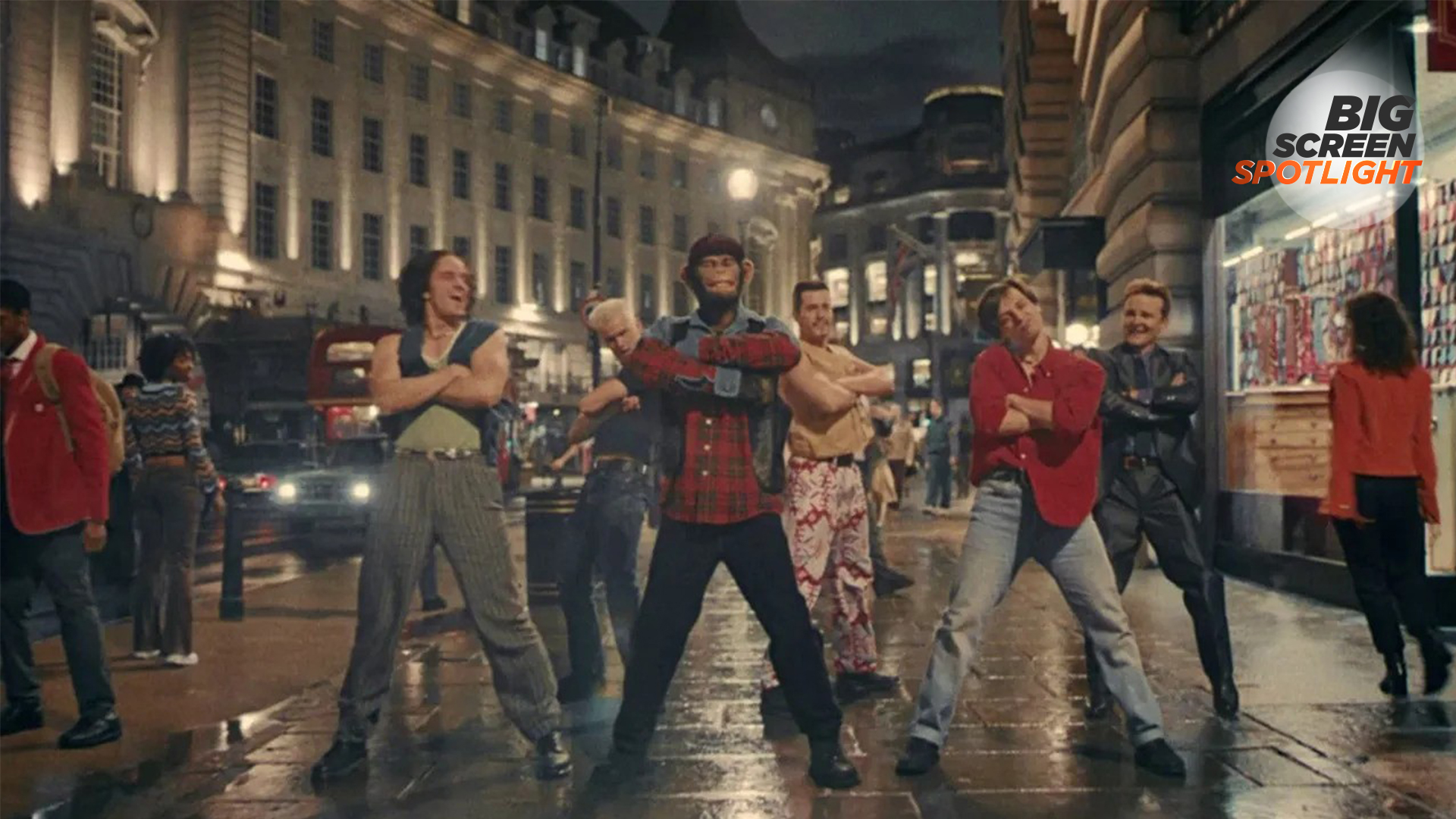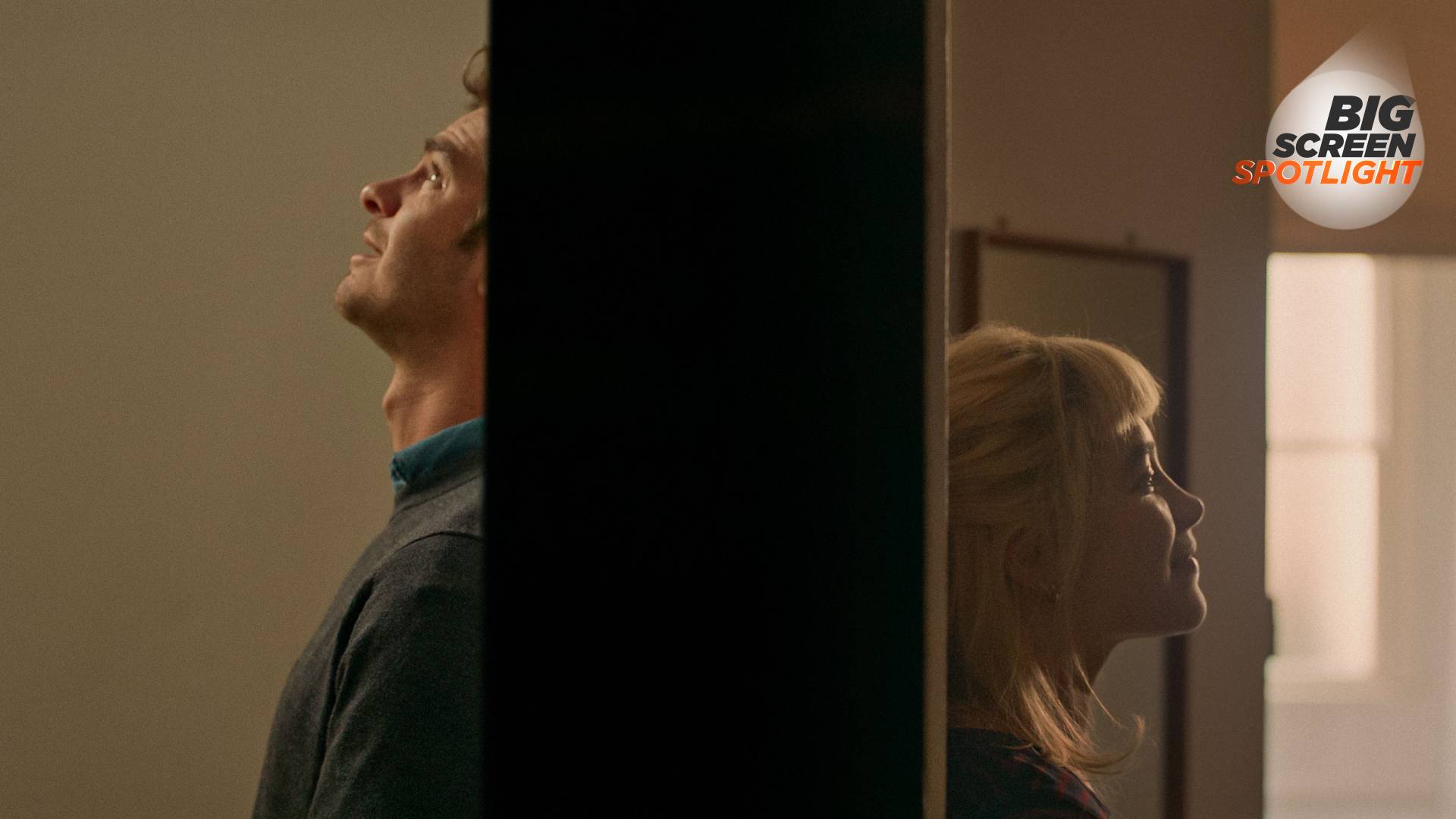
The first time that We Live in Time director John Crowley saw Florence Pugh and Andrew Garfield together on screen was at the 2023 Oscars, where they presented the award for Best Original Screenplay. Even from that short segment, he knew the pair had something special together – a feeling that only grew when rehearsals for their new film started.
Shining a light on the under-the-radar theatrical releases that you need to know about, with a new article every Friday
"I began to spot there were moments where little flickers of life began to spark into being, moments that they were playing together off each other, like two extraordinary tennis players knocking the ball around," he tells GamesRadar+. "Then suddenly one of them would hit the ball really hard, and the other one would hit it back."
It transfers to the screen in We Live in Time where Garfield and Pugh are electric as couple Tobias and Almut. The film charts their relationship from their first meet-cute, where Almut runs Tobias over, through the huge highs and deep lows of their partnership. It's optimistic and heartbreaking in equal measure, and the duo are believable in every iteration.
Time flies
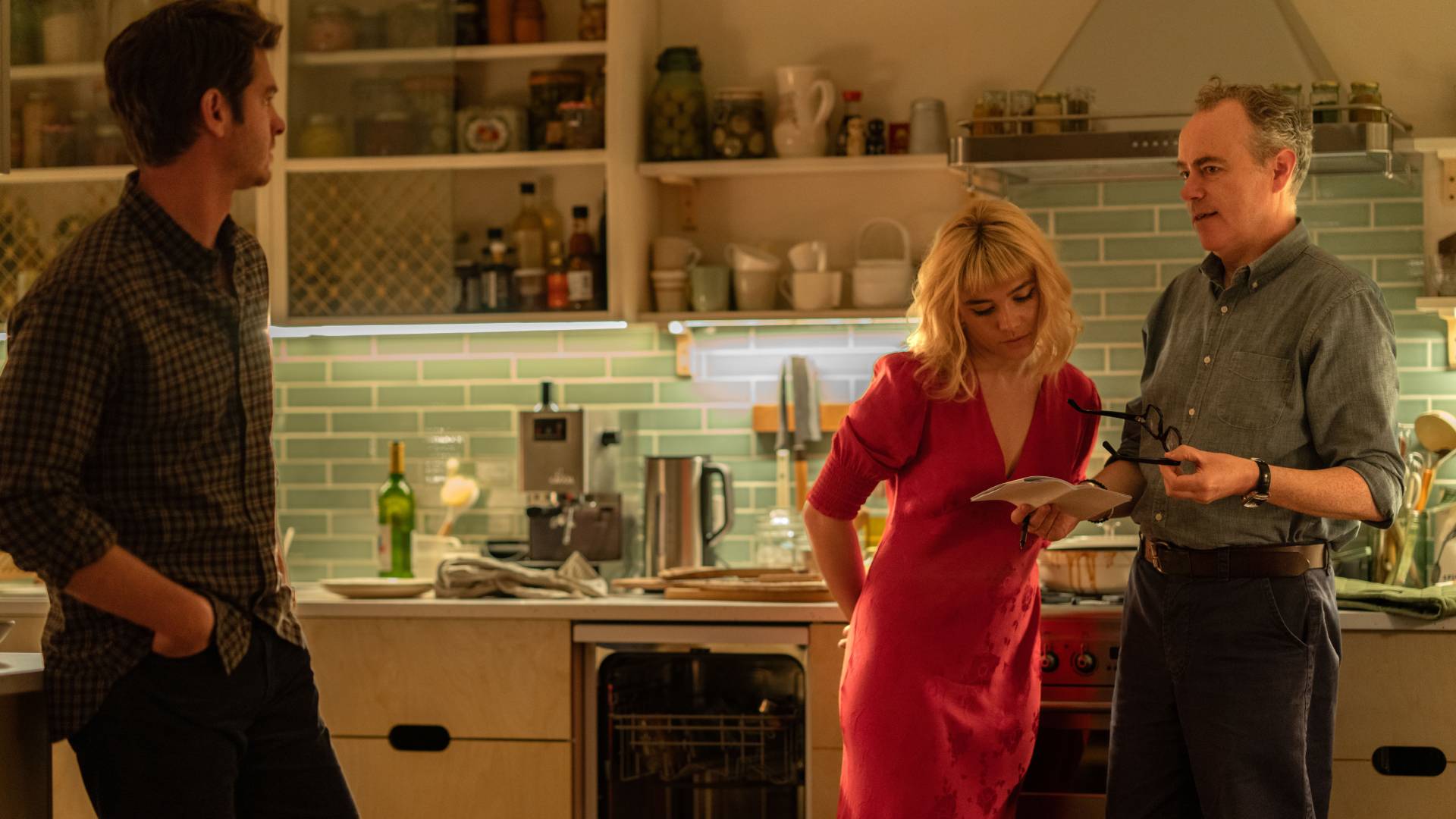
It's no mean feat either, as the film charts three distinct time periods in their lives and zips back and forth between them. These weren't filmed chronologically either, leaving Pugh and Garfield to navigate inhabiting their younger and older selves.
Even with that tricky task, Pugh was undaunted. "I will also say that each scene had such intention and such precision in where those people were at that point in their life," she tells us. "So as much as, obviously, it's tricky to jump into a film and a story when you don't really know one another, it really was made clear what we were trying to come out the other end with what product it was." As Garfield adds, it was part of the unique challenge of this story. "It was actually really a fun part of the puzzle to try and figure out where we were at each given moment," he smiles.
Scripted by Nick Payne, who is no stranger to time-hopping narratives thanks to his acclaimed play Constellations, it seems the hardest part was piecing it all together. "Nick's script had that baked into it from the start," Crowley explains of the non-linear structure. "But then we had to break it all apart and put it into a completely different order. So the beginning, the middle, and the end were, once again, all over the floor and had to be reassembled like a giant Lego set painstakingly in the editing room, because it really didn't play the way it was written, and the emphasis in scenes needed to land in slightly different areas."
A complete partnership
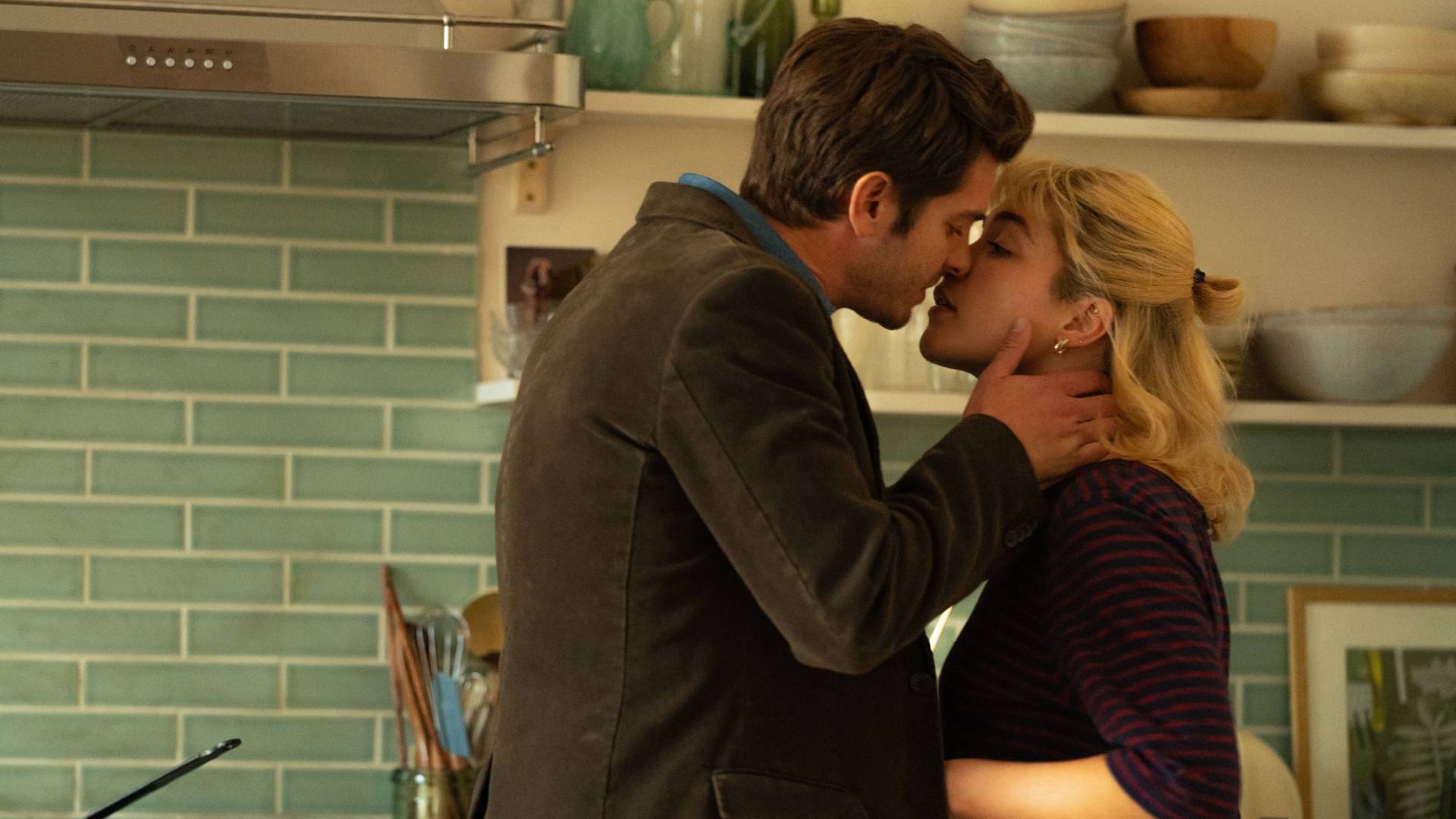
Time-hopping aside, one aspect that might surprise audiences for a romantic drama is the film's R-rating in the US and 15 age rating in the UK, classified for strong language and sex. The latter especially has often become a thing of the past in romantic comedies, and in Hollywood generally. Crowley explains that it felt essential in Tobias and Almut's story to tell the full breadth of their relationship. "I know that intimate scenes are certainly less popular, should we say, than they were, and a lot of people react against them," he explains. "So it's kind of risky to involve them or include them in a film nowadays."
The director cites two specific scenes in the film that he feels justify their existence. The first comes at the end of the couple's first date when they're reckless and young lovers, and the second is a contrasting intimate scene when they're much older and at a more emotionally vulnerable moment.
"You couldn't include one without the other if the point was that [there are] the different facets of that marriage and that it's a very fully embodied, happy, loving and nurturing relationship, in order for the things that are challenging in that relationship to be brought to the fore," Crowley explains. "So I know it was a bit of a risk, but I think it's a risk worth taking, because if you can convince viewers that those scenes have an emotional truthfulness to them and a specificity, hopefully they make the case for their inclusion against the fashion."
In We Live in Time, Almut and Tobias also learn a great deal from each other, and change drastically as they grow in their relationship together. "He's someone who transforms so much in the sense that he starts off so rigid and controlling and scared of life," Garfield says of his character Tobias. "He's on the outside of the window of a party, looking in, longing to be inside, but doesn't have the courage to actually be even like, 'Where's the door to this party?'"
Almut, a no-nonsense chef with endless ambition, changes this for him. "It's her big-heartedness, her courage, her boldness, just her as a soul," Garfield elaborates. "It's like, 'I need to be with you. I need to spend my life with you.' I don't know why, but it's like this calling into life that he feels and he has to find more courage. He has to find more risk. He has to roll the dice on life, even though he might lose everything, which – of course – we all do."
Pugh is also meditative on how her character grows and is changed by Tobias. "She has to allow for someone to take care of her and allow for someone to look after her and love her. Maybe she doesn't need to be so bulldozer-y and always be on track for the one thing that she wants. And I love that because that also kind of taught me a bit of a lesson. It's like, you have to let people in, and you have to let people be a part of your story."
Connection
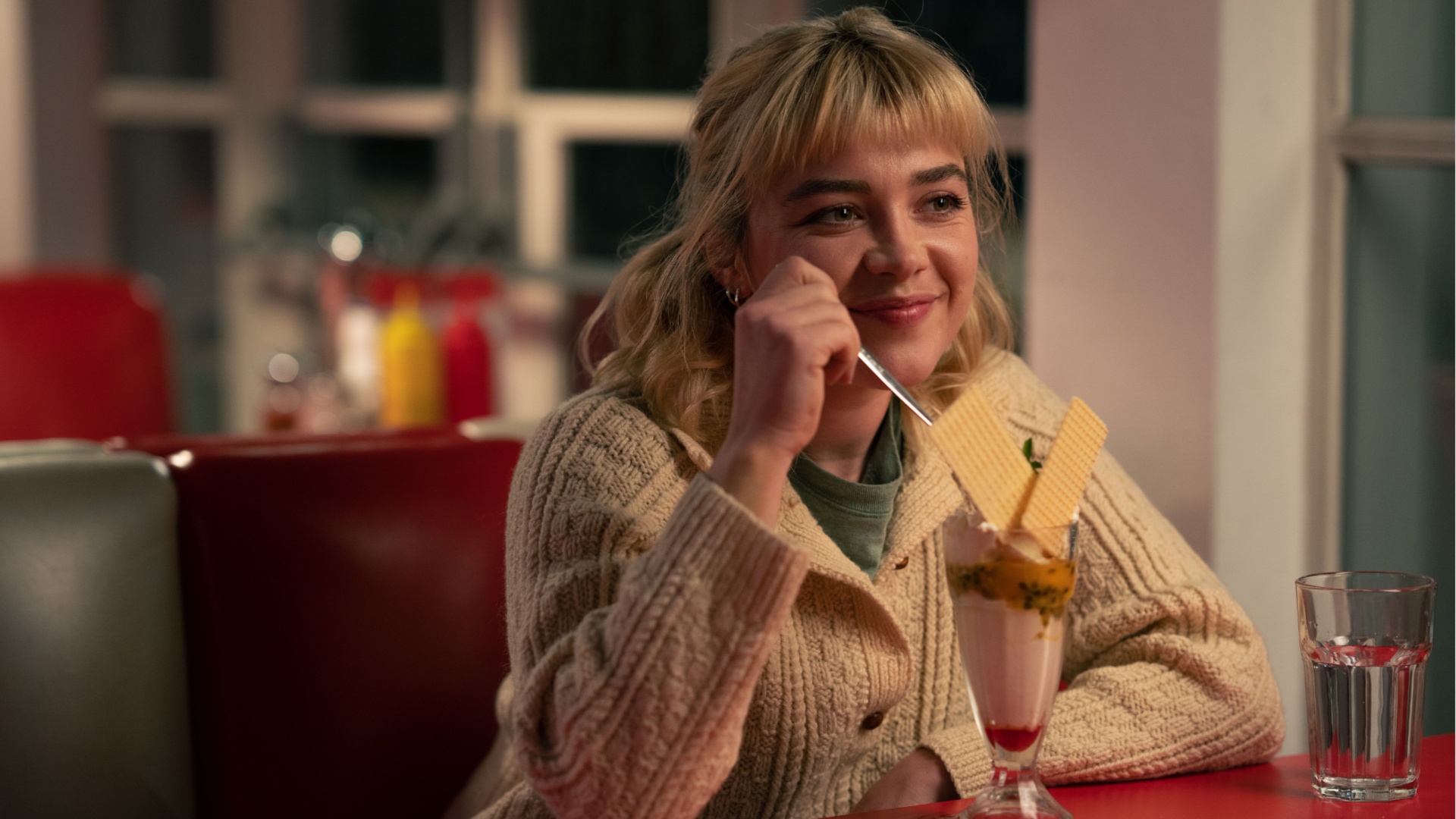
For Pugh and Garfield, it wasn't just their characters who learned from each other, but them as actors too. Pugh smiles fondly as she explains how proud she is of their work on the film. "We created those two people and that life and that intensity, that life that we made was so real and full and colorful, and it was because we were brave enough to do that together," she explains. "We were brave enough to go to those places and what an amazing experience that actually was for me to watch and witness and know that we did that."
She adds: "I love talking about it because of that, and I feel really proud of the work that we did. I've never had an experience like that before, and I doubt I will in the way that we did it."
Garfield echoes her sentiment entirely, adding: "It's so nice to find another actor that is vulnerable enough to be like, 'I really want this to be as deep and as nuanced and as detailed.' It's really scary to want that and to really try to do that, because then you're setting yourself up for either great success or great failure."
The truth of Tobias and Almut's relationship is one of the factors that makes the film so powerful for those watching it too. And part of We Live in Time's joy is that it will mean something different to each audience member who comes to it.
"People have very specific individual connections to something thematic in the film," Crowley agrees. "I have already encountered a handful of people who need to let you know that they have encountered something in the film that is very important to them, and they don't necessarily need to articulate it. So that's very special when people feel that it's speaking to experience. That's exactly what we wanted to do with the film, to try and express something inexpressible."
We Live in Time is out in UK cinemas on January 1, 2025 and available to buy on digital platforms in the US. For more about what you should be watching, read our Big Screen Spotlight series.
